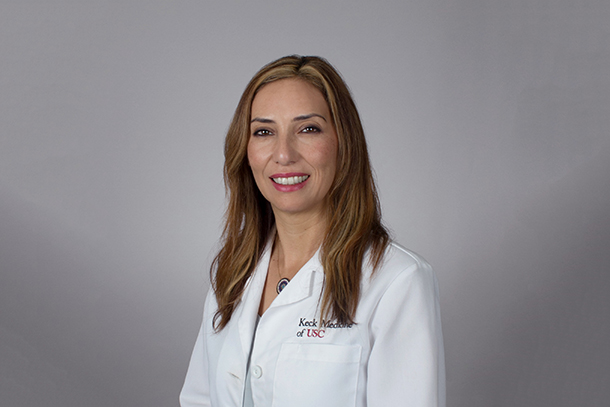The Keck School of Medicine of USC is actively recruiting Hispanics with multiple sclerosis (MS) to participate in a study examining the impact of genetics, acculturation and cultural perceptions on disease severity.
“Very little is known about MS within the Hispanic population, and less than one percent of MS studies address minorities,” said neurologist and lead investigator Lilyana Amezcua, MD, assistant professor of clinical neurology at the Keck School. “There are large gaps in knowledge that we want to address with this study.”
Hispanics are the second-largest group affected by MS, behind whites, according to Amezcua. The actual number of minorities in the United States with MS is unknown, she said.
The multicenter study, which is funded by a grant from the National Multiple Sclerosis Society, will recruit 400 Hispanics who have been diagnosed with MS within the last two years. Other study sites in the trial include the University of Miami, University of New Mexico and Caribbean Neurological Center in Puerto Rico. Participants will be followed for two years.
As part of the study, participants will take validated questionnaires about acculturation and illness perception. Some participants also will watch a short film about MS.
“Studies have shown that Hispanics in the United States who are less acculturated tend to have greater health complications and are less likely to seek medical care in general,” Amezcua said. “By asking questions about the extent of acculturation, we can begin to better understand how sociocultural factors influence the degree and severity of MS symptoms in Hispanics.”
Participants will also provide a genetic sample that will be analyzed for ancestry. The researchers will assess whether Asian, Native American, European or African genetic markers influence disease severity.
“One of the study’s goals is to determine whether Hispanics with a higher proportion of Native American and/or African genetic ancestry have more severe MS than Hispanics with a higher proportion of European ancestry,” Amezcua said.
People who are interested in being a part of this study can call Andrea Martinez, MPH, lead project specialist, at (323) 442-6817 or email andrea.martinez@med.usc.edu.
—Erica Rheinschild


